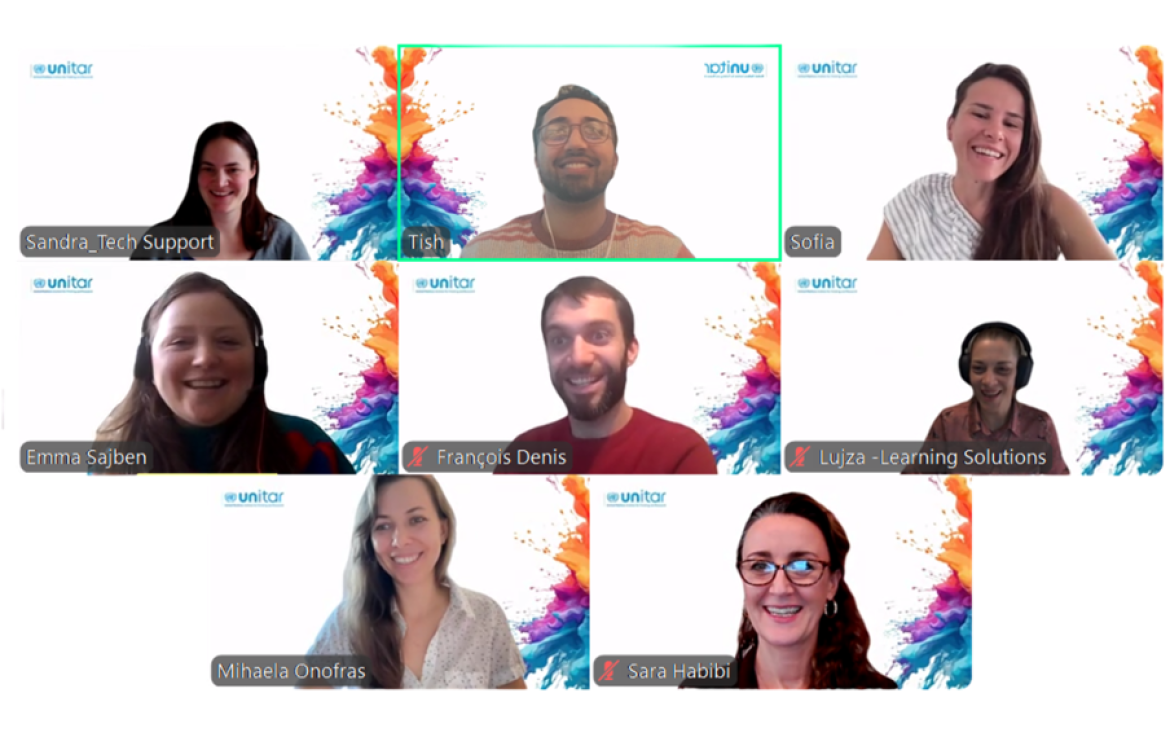The Learning Solutions team within UNITAR’s Division for Peace embodies the cutting-edge skills and forward-thinking culture advocated in the UN 2.0 Quintet of Change.
For over 13 years, we have been champions of agile, diverse, responsive, and impactful ways of working. Central to achieving the vision of UN 2.0 is a quintet of modern skills that have tremendous potential to enhance the work of United Nations entities in support of Member States. Learning Solutions supports the Division for Peace's alignment with the UN 2.0 quintet of change in the following ways:
Digital
We integrate technologies such as artificial intelligence within our design and development processes to increase the quality and efficiency of our solutions. We ensure that all of our digital solutions, such as eLearning, virtual reality or mobile solutions, embody the UNDP Digital Standards as well as international WCAG guidelines for greater accessibility.
Data
We use data to understand our audiences and analyse their needs, contexts and user experiences. Data is key to understanding the needs of the target audiences and to ensure that projects and programmes are improving over the long term. The Division uses data to inform decision-making, making analyses of learner needs, contexts and user experiences to ensure training solutions are effective and targeted. One example is the development of an Internal Monitoring and Compliance (IMAC) function within the Division to ensure projects are monitored and implemented effectively.
Behavioural Science
We embed behavioural science within our methodological approach, processes and learning tools at each phase of the learning design process. Training is a vehicle to change behaviours in service of the SDGs and we use processes such as root-cause analysis and behaviour change techniques to ensure our solutions target specific behaviours and don’t overload learners with information which does not lead to meaningful impact.
Strategic Foresight
We take a systems-thinking perspective when designing solutions by exploring problems, root causes and potential leverage points to ensure our interventions are targeted, systematic and effective. We also integrate strategic foresight methodologies into our planning processes to help us navigate complexity and develop innovative solutions.
Innovation
We explore, prototype and critically assess the latest methodologies and learning technologies to integrate into the design and implementation of our projects. As an innovation hub within the Division, we understand the value of research & development of new methodologies and keeping up with the rapid evolutions within the field of learning design. Recently, our innovative Training of Trainer solutions were selected as a finalist in the SDG Gamechanger Awards hosted by UNDP, ITU and the UN Secretary General’s Envoy on Technology.
Culture
The most powerful enabler to embody the quintet of change is the way in which we nurture the internal culture of the Learning Solutions team. We value and create structures for strong collaboration, continuous learning, research & development, as well as the psychological safety and wellbeing of our team members as a foundation of trust, which helps the team thrive on an individual and collective level. This has been the key to success over the past 13 years to create a strong team dynamic as a basis for quality, impact and innovation.
Looking forward, we are excited to work towards UNITAR’s vision to enhance its alignment with UN 2.0 efforts to become a more effective and impactful organisation within the UN system, helping to build capacities of individuals, institutions and systems around the world.


